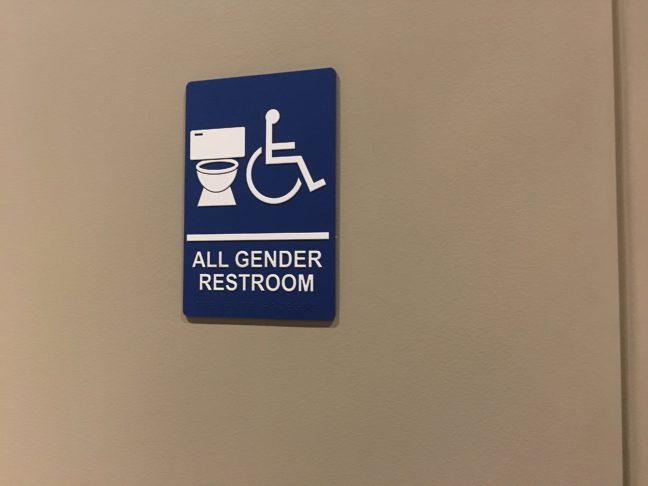The Dane County Supervisors Board passed a resolution in which all bathrooms in county buildings must have universal changing stations. These universal changing stations will be found in restrooms for any gender with adequate space and will provide enough space for two people or a wheelchair and height adjusting abilities.
These universal stations aim to make the act of changing a diaper more accessible for parents with disabilities or for those who might not identify with a particular gender. For those who do not identify as cis males, this resolution could be groundbreaking.
Changing tables are not found in all county buildings. Parents have told stories of having to change their children on the ground or in awkward areas. Changing tables in gender-neutral restrooms for parents who might not identify as male or female would be incredibly beneficial, as these bathrooms are often not built with children or changing tables in mind. People of all genders can be parents and deserve to have access to changing stations —gender-neutral restrooms included.
College students struggle to find affordable housing amid inflation
Universal changing stations not being addressed sooner is representative of gender equality issues in Wisconsin. The issue of changing tables itself is a societally gendered issue. Changing tables and the caretaking of children have historically been perceived as a female issue. The fact that the state has not viewed the lack of changing tables in bathrooms as a problem until recently is indicative that women’s issues are not considered a top priority in Wisconsin.
A statement provided by the one dissenting board member, Supervisor Jeff Weigand, represents this lack of care by the state for women’s issues.
“This is probably the furthest thing from their mind as they talk to me about county issues… can we focus on the core issues that the majority of our constituents are reaching out to us about and talking to us about?” Weigand said in a Cap Times article.
Why pay-what-you-can systems must become the norm in Wisconsin
To Weigand, and likely many other government officials in Wisconsin, issues that are not important to cis men are not important to the state. A survey of Dane County residents identified that 92.6% of respondents who answered said they would be more likely to utilize public spaces if there were universal changing stations available. This indicates that this issue is pertinent and likely has been for many years to people of all genders.
There are further gender equality issues pertaining to public restrooms. For decades, public restrooms were designed by men without much thought toward female-identifying use of the bathroom.
For example, smaller stalls which are present in most public restrooms are not accommodating for the space needed for female-identifying individuals to urinate and undress the lower half of their bodies. Women’s bathrooms also tend to be smaller than men’s restrooms but are also expected to include changing stations. Thus, women’s restrooms are smaller by every standard.
Affordable housing project generates new solutions for farmers
The resolution to include universal changing stations in county restrooms opens the door for other debates involving public restrooms, particularly gender-neutral bathrooms. The ability to have at least one gender-neutral bathroom in public spaces can make trans and non-binary individuals feel safer and more valued. Such bathrooms also allow for all people to have quick access to a public restroom in any space.
The resolution for universal changing tables allows all parents across Dane County to safely and properly care for their children, regardless of their gender or ability. This resolution is hopefully a step in the future towards more accessibility and gender equality across Dane County and the state of Wisconsin.
Emily Otten ([email protected]) is a junior majoring in journalism.














